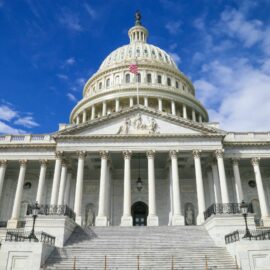Washington DC takes responsible gambling very seriously and there are many organizations across the state that support this and support sensible policy and reform with the field of gambling.
For the majority of people, Gambling is nothing more that a form of entertainment; considered an enjoyable activity that has no real negative consequences. But for other players gambling can be much than more than just a game.. It can be a serious addiction that lasts long after the enjoyment is over; consumed with an uncontrolled desire to gamble, similar to alcohol or narcotic misue. This is problem gambling. An emotional disorder that typically goes unnoticed until the effects undermine the gambler’s and their family’s financial and emotional security. Anyone planning to gamble, should always apply use caution when playing.
National Council on Problem Gambling (NCPG)
The main purpose of the NCPG is to guide state and national partners in the creation of comprehensive policies and services for all those affected by problem gambling. Their mission is to be the national voice for programs and services that help persons and families affected by problem gambling. And its long-term goal is to promote health and wellbeing by lowering the personal, societal, and economic consequences of problem gambling.
Additionally this organization is neither in favor of nor opposed to legalized gambling, they focus on a national level. Whilst state affiliates operate on the state and municipal levels. The organization three types of members: state affiliates, corporations, and individuals.
The major National programs include:
- The National Problem Gambling Helpline Network a single national access point to local assistance – 1-800-522-4700
- The world’s oldest and biggest problem gambling conference, the annual National Conference on Problem Gambling.
- National Problem Gambling Awareness Month, held annually in March
- Responsible Gambling Campaign for the Holiday Lotto held yearly in December
- Administer The International Certified Gambling Counselor (ICGC) certificate; intended to improve the capacity of drug abuse and mental health treatment programs and counselors, to deal with gambling issues
- Educating federal, state, tribal, and international governments and agencies on problem gambling concerns
- Information on problem gambling, gambling addiction therapy, research, and rehabilitation.
- Nationwide reference for gambling counselors and treatment centers.
National Indian Gaming Association (NIGA)
Based in Washington DC, this non-profit organization was created in 1985 by Congress to create rules and regulations for Indian gaming.
History
The U.S. Supreme Court decided that the state of California lacked the power to apply its regulatory rules to gambling activities carried out in Indian Country in the historic case of California v. Cabazon Band of Mission Indians.
The Indian Gaming Regulatory Act was created in 1988 to provide a legislative framework for tribal gambling regulation. Traditional Indian gambling pull tabs, lotteries, punchboards, tip jars, and various card games; all of which are permitted on tribal territory under this act.
Goals
Representing 184 Native Nations across the United States; the organisation consists of nonvoting associate members and has two main objectives:
- Maintain and protect Indian sovereign political authority in Indian Country
- Protect and preserve the general welfare of tribes seeking for self-sufficiency through gaming operations in Indian territory.
The NIGA aims to improve Indians’ economic, social, and political circumstances. They do this by collaborating with the federal government and members of Congress to create laws and procedures; to support the lobbying efforts and technical concerns related to gaming.
A tribal collective bought the NIGA headquarters building. Native Americans are the first to possess a building in Washington, D.C. Ernest L. Stevens, Jr., the organization’s chairman, and Andy Ebona, who acts as treasurer, are in charge of running NIGA.
Stop Predatory Gambling Foundation
As a non for profit organization, Stop Predatory aims to expose irresponsible gambling operators and prevent victims. They are a national network of individuals and partner organizations and are one of the most ethnical organizations in the US; where politicians, businesses and consumers can come together to support the same cause,
Funding
They receive funding from donations of board members and hundreds of concerned US citizens; who have been impacted by predatory gambling. With their strict rules of not accepting finance from organizations with vested interests in gaming; they rely on funding from smaller religious Charites and foundations..
History
Founded in the 1990s when local and state authorities opposed attempts to legalize commercial gambling in their areas. When plans of the first casino in Rockford were being considered in Rockford, Illinois, Rev. Tom Grey, a United Methodist clergyman at the time, spearheaded the opposition. With his vested interest, he went on to became the movement’s spokesperson to speak on behalf of organizations and individuals who joined forces in 1994. Together they formed the National Coalition Against Legalized Gambling (NCALG). Then after the appointment of Les Bernal as their National Director in 2008, the NCALG changed its name to Stop Predatory Gambling.
They believe that:
- USA citizens of the USA are worth more than money – every person’s life has worth and no one is expendable.
- Everyone in America should have a fair opportunity to get ahead and improve their future.
- A good society depends on the values of honesty, concern for others, mutual trust, self-discipline, sacrifice, and a work ethic that connects effort and reward.
- No organisation or Government entity should depend on predatory gambling to fund its activities.

